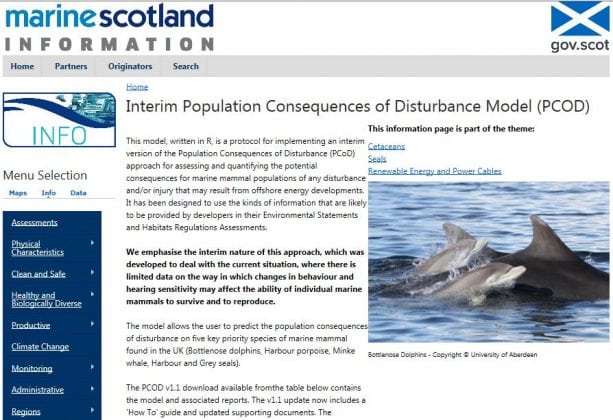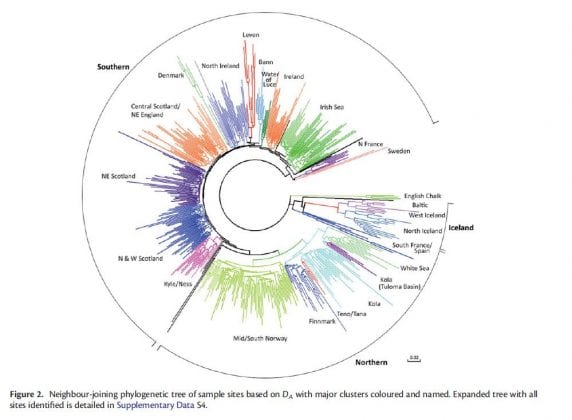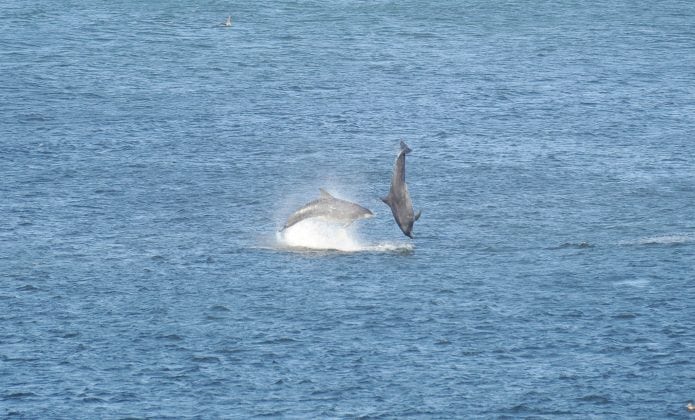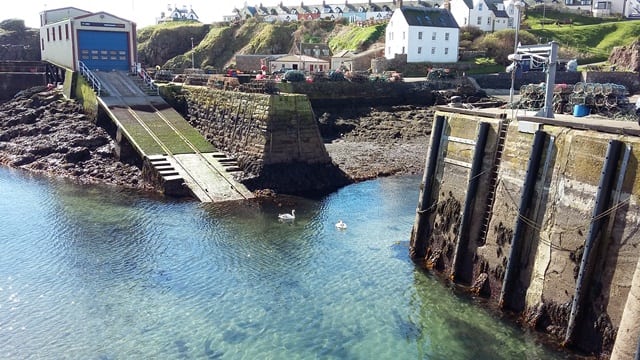Marine
-
New paper on amoeba studies published
27th November 2017 by Marine Scotland Communications
A new scientific journal article written by researchers at Marine Scotland Science (MSS), in collaboration with the Scottish Fish Immunology Research Centre (SFIRC) at the University of Aberdeen, has been published in the Journal of Fish Diseases. The principal author, Rachel Chance, is a PhD. student funded by the National Centre for the Replacement, Refinement...
-
Crab and Lobster Fisheries in Scotland: Results of Stock Assessments 2013 – 2015
16th October 2017 by Marine Scotland Communications
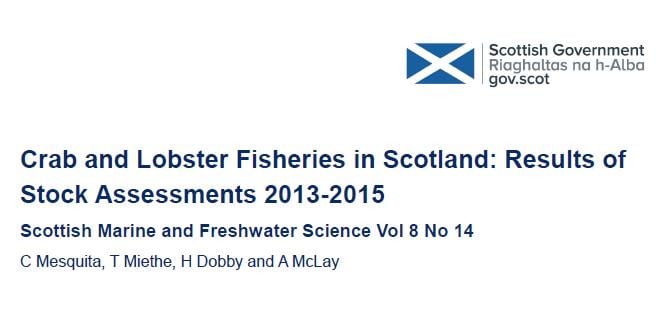
Today, Marine Scotland published the latest in its Scottish Marine & Freshwater Science series – Crab and Lobster Fisheries in Scotland: Results of Stock Assessments 2013 – 2015. Crabs and lobsters are important species for the Scottish fishing industry. Although the total quantity landed is small relative to finfish landings, crab and lobster attain high...
-
Predicting the impact of underwater noise on marine mammals
13th October 2017 by Marine Scotland Communications

Marine mammals, such as seals and dolphins, are sensitive to underwater noise and other disturbances which can affect their ability to forage or communicate. Our understanding of the effects of these pressures on marine mammal, and of how to assess and quantify potential impacts on populations, is rapidly evolving. One tool that can be used...
-
The genetic stock identification of European Atlantic salmon
29th September 2017 by Marine Scotland Communications

Marine Scotland scientists, including senior author Dr John Gilbey, Eef Cauweiler and Lee Stradmeyer, have been involved in a recent publication in the ICES Journal of Marine Science. The publication, which is the results of a collaboration between researchers from laboratories in 11 countries from across Europe, provides the most comprehensive geographical coverage for an Atlantic salmon data-set for genetic stock...
-
When I’m calling you…
21st August 2017 by Marine Scotland Communications

A new paper using underwater sounds to classify dolphin species has been published by researchers from the University of St Andrews and Marine Scotland Science (MSS). Many species of marine mammals use sound to navigate the seas and find food and their echolocation clicks can be detected by specialised underwater acoustic instruments. The MSS East...
-
SCObs Weekly Sampling to Expand at St Abbs
7th April 2017 by Marine Directorate Communications

The Scottish Coastal Observatory (SCObs) monitors the temperature, salinity, nutrients and plankton community at a number of sites around the Scottish coast. The efforts of Marine Scotland scientists are supported by a network of local citizen-scientists who deploy small temperature sensors and collect water samples for analysis. Many of the SCObs sites have been collecting...
-
How do dams impact river connectivity and salmon populations?
16th March 2017 by Marine Scotland Communications

Many of Scotland’s rivers contain important rearing habitat for juvenile Atlantic salmon, an anadromous fish species that supports an economically important fishery and is often a target for conservation with many of its home-rivers designated as Special Areas of Conservation. Many of these rivers also generate hydroelectricity, which is an important source of renewable energy...
-
Helping fishermen to DiscardLess
6th February 2017 by Marine Scotland Communications

Today sees the publication of a new report in the Scottish Marine and Freshwater Science series, but it’s something a little different – it’s a Manual and some factsheets. The Selectivity in Trawl Fishing Gears manual forms part of the DiscardLess project – a Horizon 2020 project set up to provide the knowledge, tools, and methods required for...
-
Keeping an eye on the coastline with SCObs
23rd January 2017 by Marine Scotland Communications
Scientists in Marine Scotland, along with a small group of voluntary citizen-scientists, have been monitoring the physics, chemistry and biology at multiple sites in Scotland’s coastal waters since 1997. The sites monitored, shown on the left, include Millport, Mallaig, Loch Maddy, Loch Ewe, Scapa, Fair Isle, Scalloway, Cromarty, East Coast and Stonehaven. Consistent ecological time series of data...
-
Marine Scotland Science Annual Review 2015/16
8th August 2016 by Marine Scotland Communications
The latest Marine Scotland Science Annual Review 2015/16 has just been published which gives an insight in to the huge range of knowledge, skills, achievements and level of work undertaken by the scientists working within the Marine Scotland family. As the Head of Science, Professor Colin Moffat (pictured right), explains: “High quality science and advice that...

